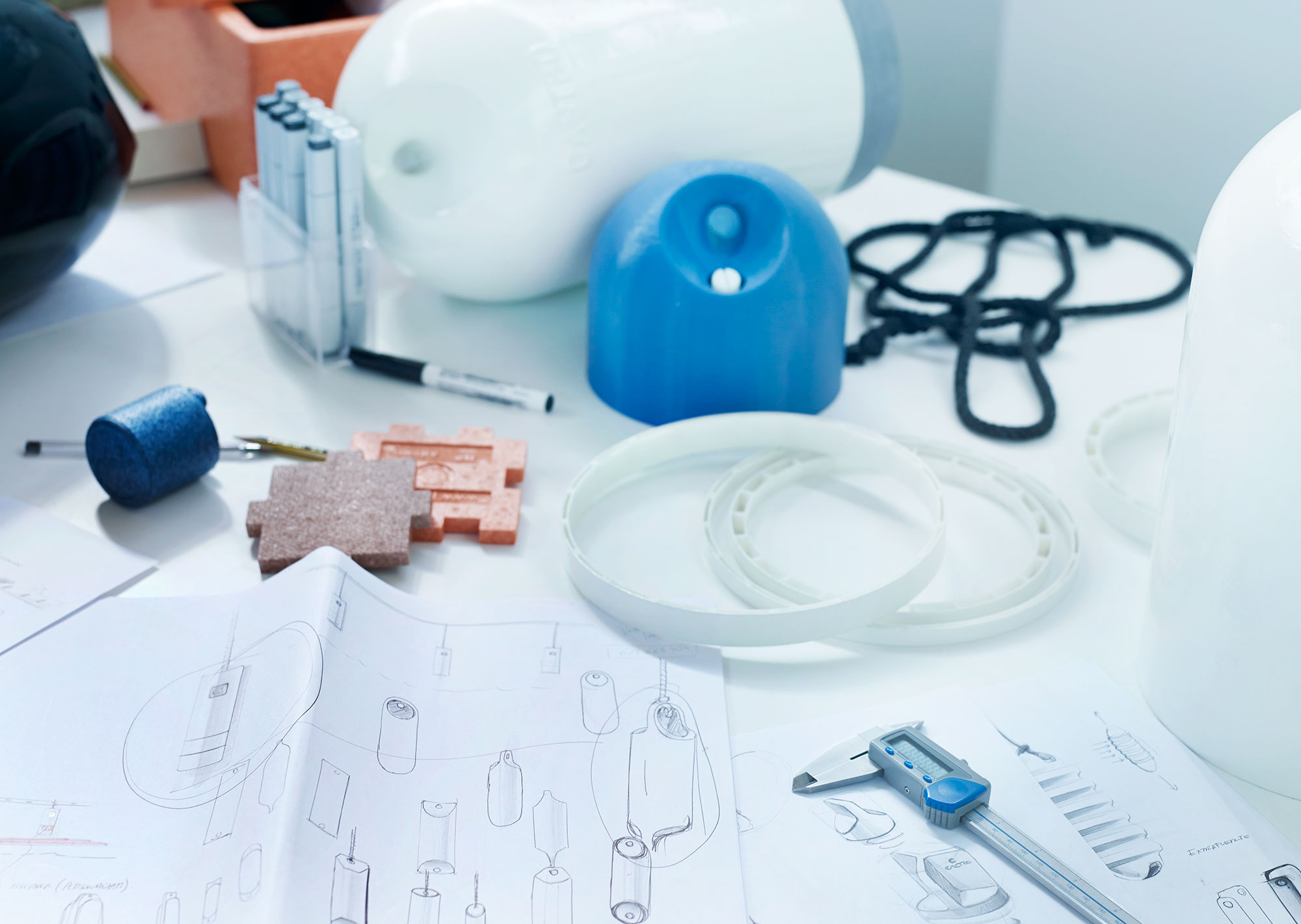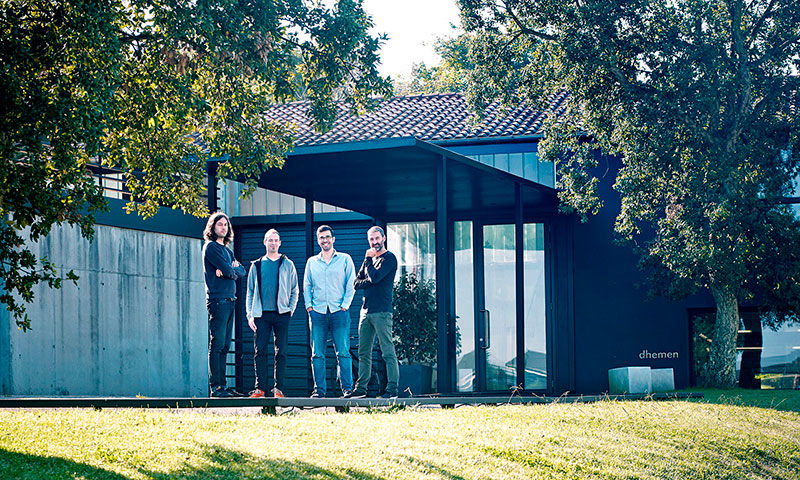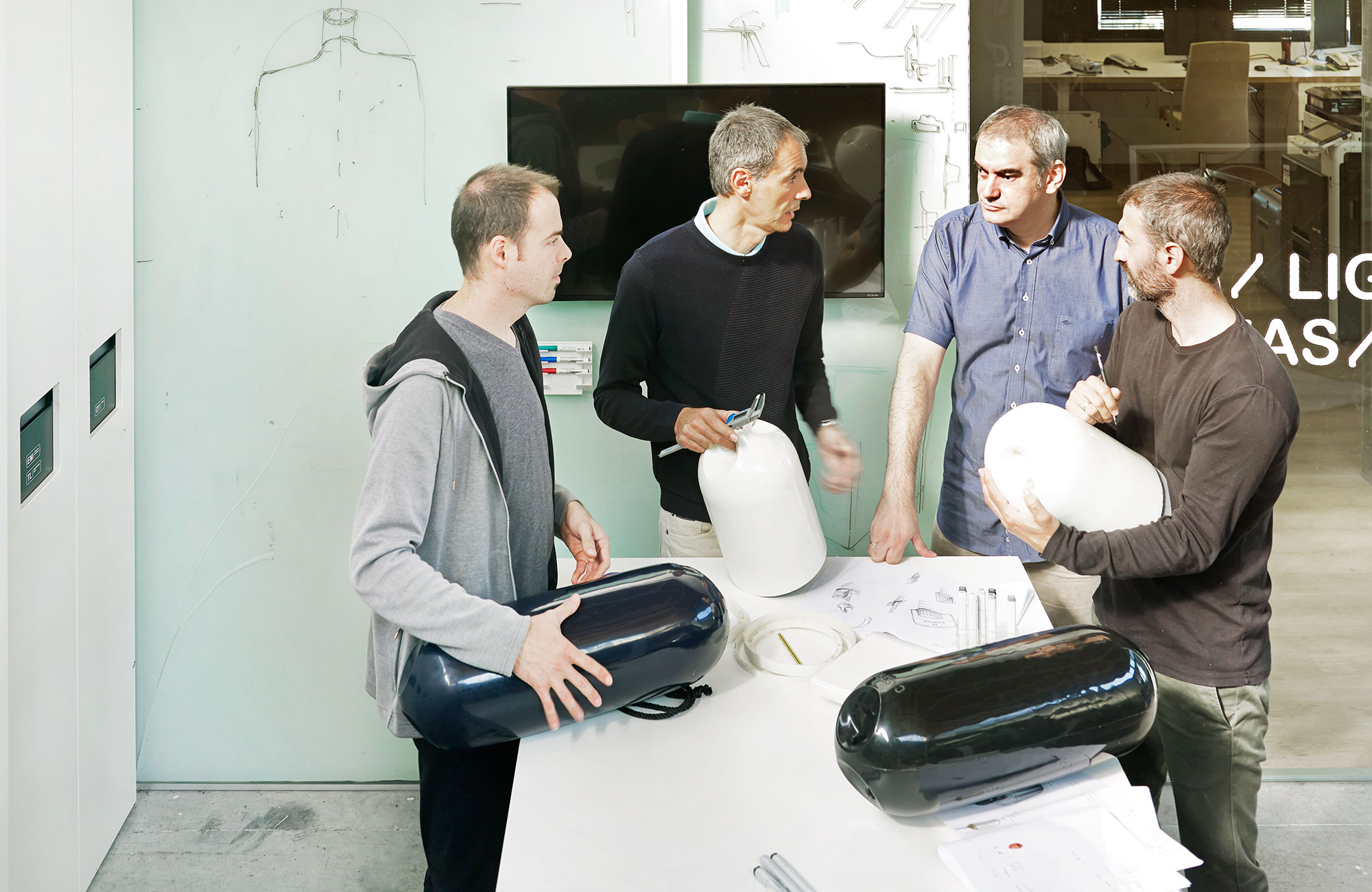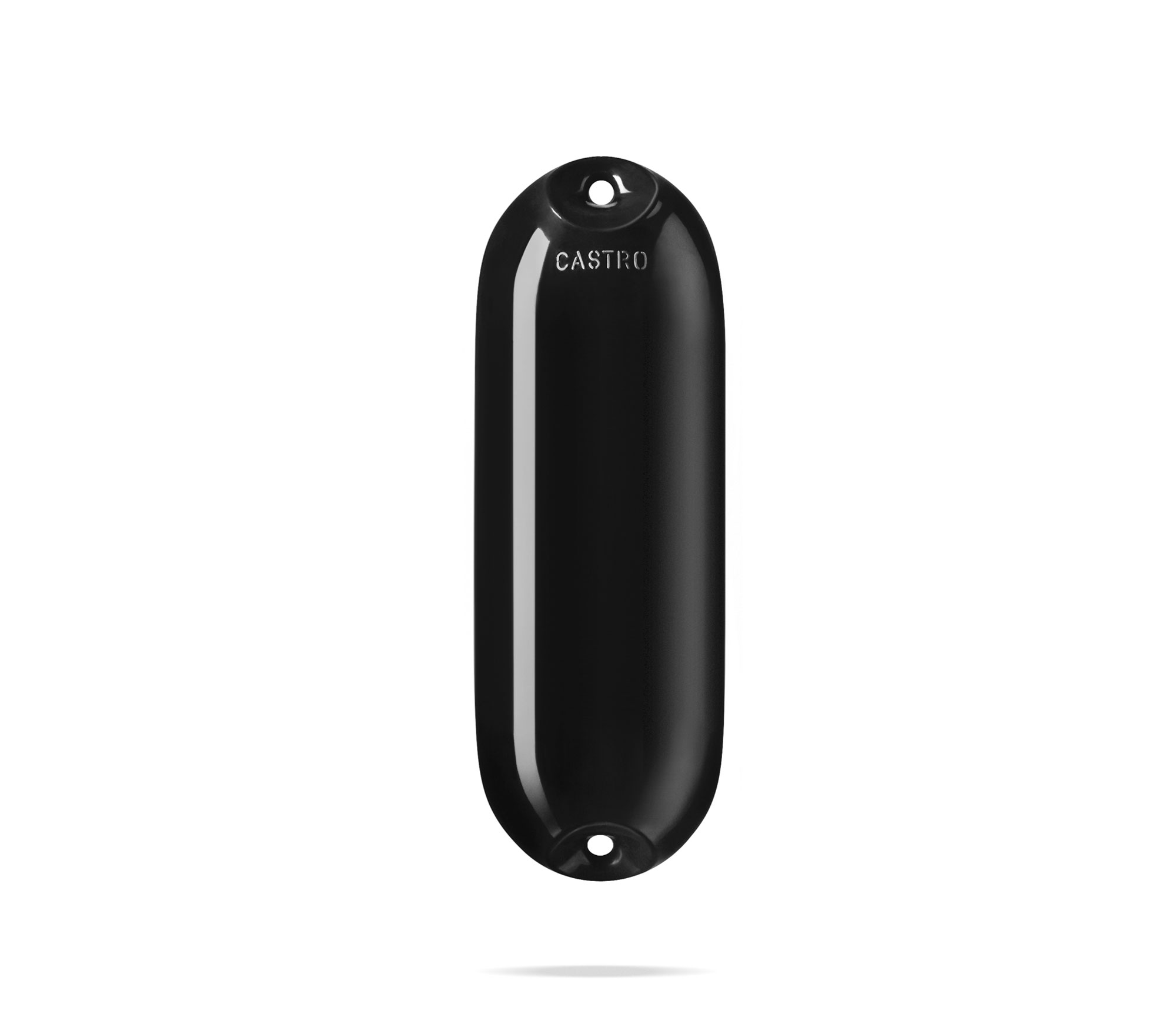More with less
Orio, like Pasajes, is situated next to an estuary that is connected to the Cantabrian Sea. Founded in 1995, the Dhemen industrial design studio can be found on a hill close to the estuary, to the sea and to the historical heart of Orio.
During its more than twenty years in business, Dhemen has played a part in the design elements of a wide range of projects and has taken on challenges as wide-ranging as service stations, electric bicycles, pleasure boats, office furniture and driving simulators. There are currently 293 products designed by Dhemen available on the market.
The world of the sea is not new to them. If you are born and live in Orio, it’s only natural that you will feel the presence of the Cantabrian Sea and everything it is associated with (sport, gastronomy, pleasure…). When Igor Esnal, one of the company’s founders, was 8 years old he built a small boat so that he could cross the Oria river. He built it without his parents knowledge. Nowadays, Igor, his siblings and the 7 employees at Dhemen continue to do pretty much the same thing – dream, design and create – but without keeping it from their parents.

At Dhemen, design is creative and innovative, a mixture of craftsmanship and industrial processes.

Dhemen was founded in 1995 by the Esnal brothers and now has an interdisciplinary and multicultural team of staff.
A year and a half ago, the Castro brothers got in touch with the Esnal brothers. They wanted the Esnal bro- thers to look into the option of a new fender for the marine industry. They got to work and began con- ceiving and shaping a fender that would improve on what, for decades, had commonly been accepted as ideal and untouchable in articles of this kind. The idea was to make the entire fender surface area usable whi- lst remaining stylish. It need to have added usability and design. It would prove to be a product that would summarise the journey Castro had taken over the last 48 years and link it to the journey still ahead.

At Dhemen, they describe their trade as ‘industrial craftsmanship’. To them, design is creative and inno- vative, and they combine craftsmanship and industrial processes.
The Dhemen studio is in an incredibly well-lit building that nonetheless has a darkened room painted in black and with just one window that generally has the cur- tains drawn. This is the place where all the ‘industrial craftsmanship’ projects they are commissioned begin and end. This is the place where the walls, each and every one of them, are filled with notes, drawings and sketches when each project begins. This is the place where, months later, clients are presented the final product.
The presentation was given in March 2017 and the Castro brothers were presented the NFD series fender that had been developed for their brand. It was a huge surprise. And a wonderful one. A truly wonderful one. After over 48 years manufacturing buoys, fenders and floats, they were about to revolutionise the market.

The NFD series was created in order to give the sailing industry a designer fender.